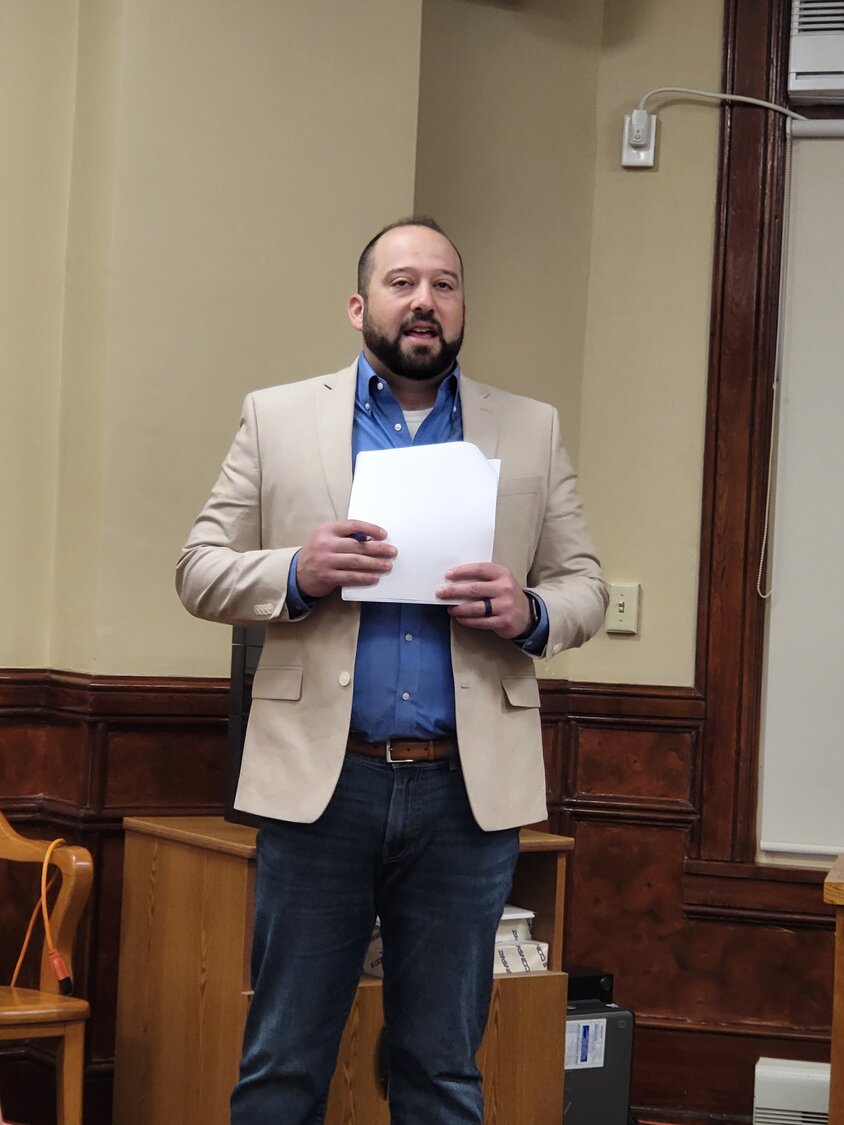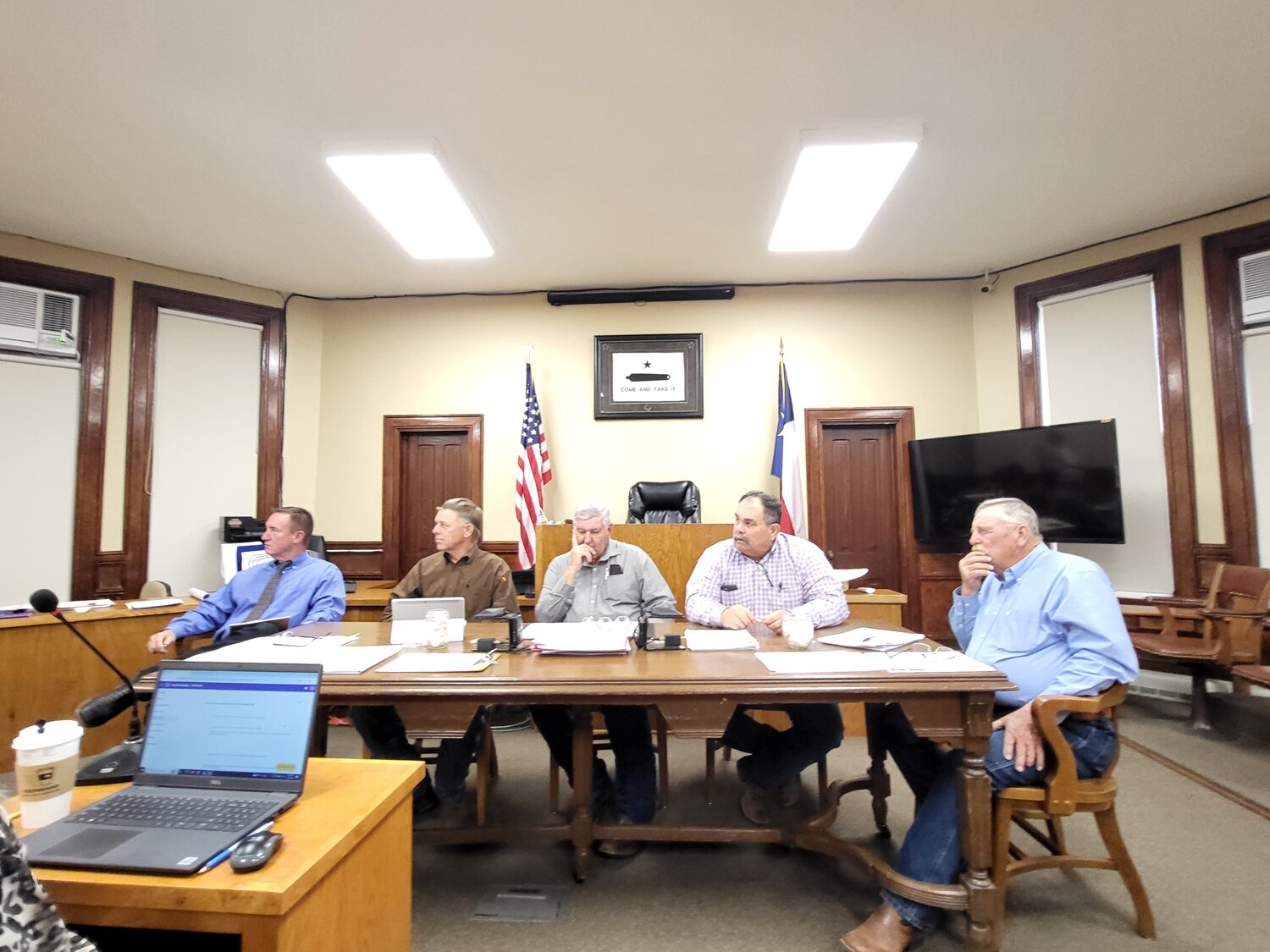Commissioners to hold workshop on updating subdivision rules
Gonzales County commissioners will hold the second in a series of workshops about rewriting the county’s 17-year-old subdivision ordinance at 10 a.m. Monday, July 29.
The workshop, which will be held in the Commissioners Courtroom at the Gonzales County Courthouse, 414 St. Joseph St., Gonzales, is open to the general public to provide input on updating the Gonzales County Subdivision Rules, which were originally adopted July 23, 2007 and were last amended in 2012 — 12 years ago.
Attorney Eric Gomez of the Braun & Gresham law firm in Dripping Springs will lead the meeting, during which interested parties may bring their comments, questions, concerns and ideas as “your input is critical to a successful code rewrite,” Gomez said.
The workshop will include an overview and summary, followed by a look at Articles V (Meetings and Sketches), VI (Preliminary Plan), VII (Final Plat) and VIII (Street Design and Construction). There are a total of 15 articles, plus four appendices, in the existing 71-page subdivision ordinance. Articles IX through XV will be reviewed at later workshops.
Commissioners held a similar workshop with Gomez in May and went over the first four articles of the ordinance, which include a preamble, definitions, general subdivision requirements and exceptions.
“Our task is to rewrite the subdivision ordinance for Gonzales County and to bring it up to speed and up to date, and make it as applicable and malleable with the growth that this county is experiencing,” Gomez said at that time. “In order to do that, we need the community's participation and insights and experience, because the people who are out there on a day to day, applying for permits, driving on our roads, and drinking water understand some of the problems and issues with development.”
Gomez said state laws have changed a great deal since 2012 and “some of these changes are pretty pretty darn important.”
“There's one just in the past year that changed the triggering of a plat requirement for developers and that has to do with laying out private roads,” Gomez said. “In the past, laying out any kind of road would require a platting change, but you can lay out a private road now without a plat change.”
Gomez said the state has scaled back the so-called “shotgun statute” from giving counties 60 days to approve a “complete plat application” to 30 days.
“Do you think those extra 30 days are useful and would be helpful to the county in the filing process? Absolutely. It cuts time in half,” Gomez said. “A complete plat application is subjective, to be determined by the commissioners and their support staff. Once a complete plat has been submitted, you have 30 days now to approve or disapprove. That’s a big deal, so we want to bring up the ordinances to meet the current state law.”
Gomez said state law, especially the state Constitution, is much more favorable in how it treats the powers of cities versus the powers of counties, which have much more limited tools at their disposal.
“A city can do just about anything they want to under the Constitution, unless the statutes say they can't.,” Gomez said. “Counties are on the opposite side. They can only do what the statute says they can, so there's not a whole lot of wiggle room or discretion to sort of create the laws of the land that you want to see. They've got to be attached to a foundational statute in the Texas Constitution, or Texas Local Government Code, or something like that.”
“So it's really important for us to look at the local government code and determine whether or not our ordinances match and whether they're up to date,” Gomez said. “Do they exceed the powers of the statute? That’s the point of this workshop.”
Gomez said the counties doesn’t have “a ton of authority beyond what the statute says in some specific areas.”
“You've got authority over platting, authority over roads and transportation, authority over water quality,” he said. “Within those areas of control, even though it is limited, are you maximizing your authority?”
Gomez said Title 31, Part 10, Chapter 364 of the Texas Administrative Code, which governs the Texas Water Development Board, includes model subdivision rules, along with minimum standards and rules regarding plat approval and enforcement.
“They have written an ordinance for counties specifically that helps counties to maximize their authority over water, specifically water issues and it's really good,” Gomez said. “For example, you should not be, in my opinion, platting property if the property doesn't have adequate water or a way to get adequate water on that property.”
Gomez said the county should include those model subdivision rules as a part of its own subdivision ordinance.
Public comment at the July 29 workshop will be allowed both in-person or remotely by video conference with a link to the video conference provided on the county website, while the current subdivision rules can be reviewed at https://www.co.gonzales.tx.us/page/gonzales.County.Permits.
Comments









